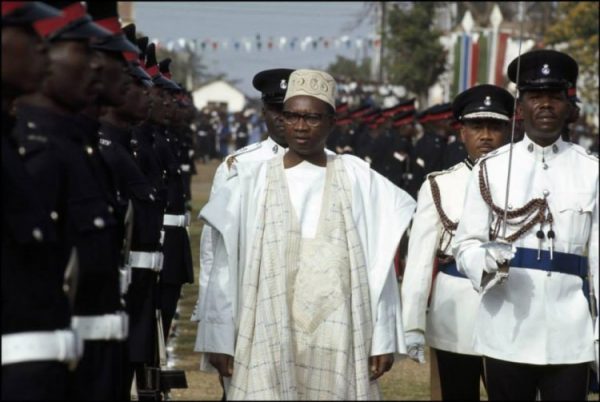 I watched the funeral service of Sir Dawda Kairaba Jawara on national television and on social media, and I wondered if money and ambition allowed Gambians especially elders, parents, religious leaders, politicians, youth activists, lawyers, journalists, egalitarianists, men and women in uniform as well as traditional leaders or elected governmental officials to watch it.
I watched the funeral service of Sir Dawda Kairaba Jawara on national television and on social media, and I wondered if money and ambition allowed Gambians especially elders, parents, religious leaders, politicians, youth activists, lawyers, journalists, egalitarianists, men and women in uniform as well as traditional leaders or elected governmental officials to watch it.
If they did, how many of them wished they also would end their earthly journey so gloriously? But is ending well not a function of living well? Mud, they say, does not float a boat. Or can a man enjoy the rose of heaven without dying?
In the end, what matters is not the power or money or position but humanity if you look at the end of a man and the vibrations that see him off. Only leaders who stand on God’s side die well and are celebrated. The very scriptures we belief would argue that life has meaning only when it is lived well; that life is lived well when it is lived in truth and in selflessness. I do not think anyone dies well when all he lived for were money and power and their fleeting benefits.
When a king rules with justice, the town knows peace and lives in abundance. The deeply spiritual tells us that every woman is fertile and that there is none who cannot give birth to the wisest of all creations; that there is no childbearing woman who cannot give birth to a king. The only condition is character which determines how the water of life flows.
Former President Sir Dawda passed on Tuesday August,28 2019 at the age of 95. Our condolences go to his family, his people in Barra Jally village in Central River Region, and fellow Gambians. Being a former President of this much raped and abused country, his loss should be mourned by all.
We pray and remember Sir Ahagie Dawda Kairaba Jawara Dicko founding father of the great Nation of the Gambia. End of an era. An epochal moment in history. A titan on the international stage. He was revered as the Father of Democracy in Gambian politics and a champion of human and people’s right.
Sir Dawda Kairaba Jawara was regarded as the eponymous hero and progenitor of the Banjul Charter, home of the African Commission on Human and People’s Rights as well as the domicile of the African Center for Democracy and Human Rights Studies, a pride of Africa and a gift to the Gambia, courtesy of Sir Dawda Kairaba Jawara for ensuring the promotion and protection of Human and People’s Rights as well as safeguarding civil and political liberty in the Gambia. May Allah, the merciful, the beneficent, grant him Aljannah Fridaus.
As we mourn the passing of President Kairaba Jawara, in a country like ours where our cultures prescribe we do not speak ill of the dead , and where our past and recent histories are often distorted or forgotten, we must truthfully state Sir Dawda Jawara,as a politician no matter what you think of his time in office, it’s hard to argue that a human being has his failures and weak leadership records, even as we recognize Sir Dawda as a model father or husband, and grandfather for the Gambia family, his warm, and genial personality, wholesome nature, sympathetic and kindly manner endeared him to all. By reason of the soul honor. Sir Dawda Kairaba Jawara’s integrity and reliability is beyond question.
This is the right thing to do. By so doing, history is not robbed. Facts are not distorted. And the current power wielders, who are “ good people “ surrounded by some “ bad people” may take heed in the realization that personal character and integrity means nothing if it is not matched with transparent competence, and if it cannot be used to prevent bad people who find their way into government from being the determiners of the direction of government while the elected good people wring their fingers and do nothing.
One queerer controversy dogged his emergence as president. First, Alhaji Sir Dawda Kairaba Jawara was said not to be an overtly ambitious, power craving politician. He reportedly had initially expressed no interest to run for office as a leader of an emerging republic sovereign state, indicating his preference to be a veterinarian to remain in the civil servant. He was, however, persuaded by the influential “kingmakers” in that era, principally and allegedly people living in Banjul but has origin in the protectorate, a provincial Gambia political power epicenter, to vie for top leadership of the country. He was, therefore, an unwilling (and presumably) an unprepared candidate. When his performance in office became lackluster, his leadership failures and weakness was among others attributed to his being an unwilling leader.
Upon being sworn into office, Sir Dawda Kairaba Jawara exhibited humility, geniality and generosity of spirit. Unfortunately, President Dawda Kairaba Jawara was a genial President who presided over a profligate and financially reckless government that squandered the opportunities for socio-economic development for the Gambia during his rule.
Sir Dawda was surrounded by hawks with both feet on the ground, men who think with the belly and eat with both sides of the mouth. Sir Dawda’s inner circles were corrupt people, whom he couldn’t rein in, a budding kleptocracy was being implanted in his government.
Every patriotic admonition by the opposition, principally Mr. Sheriff Mustapha Dibba’s National Convention Party and the People’s Democratic Organization for Independence and Socialism party that the Gambia was headed in the wrong political and economic direction was derided as a prophesy of doom from an ever-lamenting opposition and the independent press.
Most of the policies and programmes of the PPP were incoherent and not well thought through. In the agricultural sector, for example, a meaningless Agricultural policy was put in place with millions of Dalasis being voted for the importation of fertilizers to help farmers. Yet, evidently, the fertilizer importation frenzy was largely a scam meant to siphon money by corrupt civil servants. So also, was the rice importation and cement importation policies. The ports became congested, with task forces being set up to clear the ports. It was an era of unbridled importation of goods, including luxury goods leading to the depletion or evaporation of the Gambia’s foreign reserves.
To the credit of the PPP administration, however, there was quality in the technocratic civil service and in country’s education system at all levels specially in secondary and vocational sector ; hosting the African Commission on Human and People’s Right and the Center for Democracy Studies in the Gambia and the laying of the foundation of the Gambia’s development sector in the country.
In departure from the pretentious “low profile “culture era, where the official car of Cabinet Ministers and senior civil servants during the People’s Progressive Party rule brought a thoughtless flamboyance into government, a lifestyle that the economy could not support. Mercedes Benz Cars became the official cars of government officials (just like Toyota Prado Jeeps of today). The PPP government bought expensive and luxury official cars, thereby starting a tradition of maintaining a wasteful government vehicle, a tradition that continues to rule our lives as a country till today.
When patriots were warning that poverty had become accentuated under the PPP government, a garrulous and cynical member of Sir Dawda Kairaba Jawara’s cabinet reportedly taunted Gambians that no Gambian had started eating from refuse dumps!
The Government boasted that the economy was strong, and when the bubble burst, President Jawara, faced with the grim situation of the economy introduced “austerity measures”. It was the economic hardship brought about by that gross mismanagement of the economy that the military used as a pretext to stage the 22 July1994 coup, which unfurled a chain of unbroken 22 years of Yahya Jammeh’s kleptocracratic rule and Adama Barrow’s executive and managerial myopia.
President Dawda Kairaba Jawara was not known to be a personally corrupt ruler as some of the military junta that ousted him and after him were known to be. He was flamboyant in his resplendent, well embroidered “Kairaba Dicko white three-piece boubou Style” dress with his white cap to match. He enjoyed the pomp and pageantry of presidential power; and he enjoyed traveling the world. He liked paying state visits and playing golf. In 1981, he left the Gambia on a scheduled trip to London to witness the wedding of Prince Charles and Diana. On that trip Kukoi Samba Sagnia attempted to overthrow his government.
Since independence, major corruptions and scandals have plagued the Gambia, with the perpetrators persistently evading punishment. This is despite the Special Criminal Bill that was passed in Parliament in 1979 by the former Attorney General, Momodu Lamin Saho, as well as the Evaluation of Assets and Prevention of Corrupt Practices Bill, shepherded in 1982 by the former Attorney General Fafa M’bai.
To regain the public’s confidence in the government’s integrity, the laws on asset declaration in Gambia was formulated without fear or favor. It is vital that conflicts of interest or illicit enrichment were detected.
In many respects, Sir Dawda Kairaba Jawara aimed to confront the problem of corruption in his government. However, the People’s Progressive Party (PPP) era was inseparable from widespread corruption that took such firm root in the country that ill-gotten gain was flaunted as the norm. When the Special Criminal Court Bill was tabled in Parliament in 1979, then Attorney General Saho stated: “It is not alarming to say that this country will be destroyed if this cancer [of corruption] is not arrested now.”
He continued to state that he made “no apologies for this Bill,” adding that “No stone would be left unturned in the fight to protect the interest of the public from the rapacious mafia within our society.” In 1980, the view was expressed by one Member of Parliament that “more stringent measures such as hand amputation ought to be introduced” to stem the tide of runaway corruption.
In an address to accounting personnel of the government in July 1980, a Parliamentary Secretary suggested, according to the Gambia News Bulletin, that embezzlers should be punished by firing squad.
It was in this climate of mass disaffection with the PPP government that Kukoi Samba Sagnia emerged in 1981, and in which Fafa M’bai, Attorney General in 1982, marshalled the Evaluation of Assets and Prevention of Corrupt Practices Bill, which on 31st December 1982 became Act No. 17 of that year. We know what happened to Fafa Mbai and his Anti- corruption Act when the “rapacious mafia” went to work on him. It is not even persuasive to contend that the “society” perceived “the exercise as being manipulated and used as a political weapon targeted principally against the urban elite of a particular ethnic group.
There was overwhelming evidence of corruption in government and in public sector. The World bank reports by Katherine Marshall (1992), Robert McPherson and Professor Klitgaard reports, businessmen, the wealthy and the powerful businessmen, politicians, on police and customs exercise, corruption reports.
The level of “Public Sector Corruption” (1990-1993) was the ultimate threat to effective governance under Sir Dawda Kairaba Jawara. But one thing that has marked the Gambia from others is that, especially at the highest levels of government, our corruption (and our tolerance for it) has been comparatively very high. I am dismayed by what is taking place in the Gambia today. Over the course of my life I have never seen a level of corruption in the country equal to that emanating from both Adama and Yahya’s administration in public sector service corruption.
President Kairaba Jawara certainly was not like many politicians of the Second Republic and this current government who engage in massive asset stripping of the Gambian State in the name of privatization. Nor did he recklessly loot the treasury of the country as many of them have done. But, by His laissez faire approach to governance, his negligence in duty, his permissiveness and his lack of exhibition of a disciplined leadership, he created a basis for the collapse of the first republic.
Sir Dawda Kairaba Jawara his life taught a lesson that there are some things bigger than party or ambition or money or fame or power, that there are some things that are worth risking everything for — principles that are eternal; truths that are abiding.
Jawara Dicko was defined by love. So much to learn from his legacy. Gambian politicians will become noble the day they stop seeing party and ambition and money and power as the reasons for his politics. Sir Dawda Jawara’s strength of his character we could see God in his life. For him, every human being deserved to be treated justly. He had special affection for all.
Adieu President Dawda Kairaba Jawara Dicko.

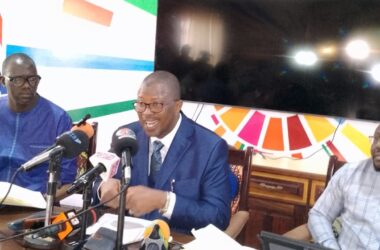
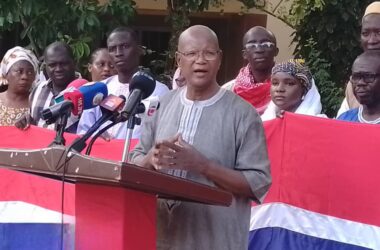
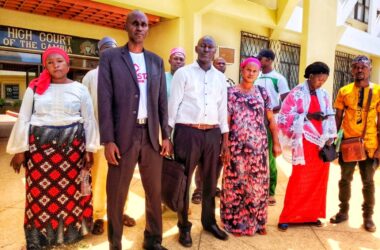
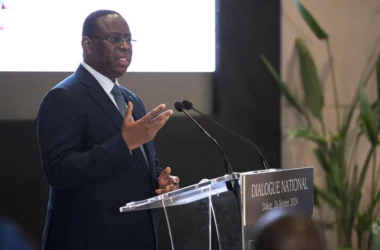
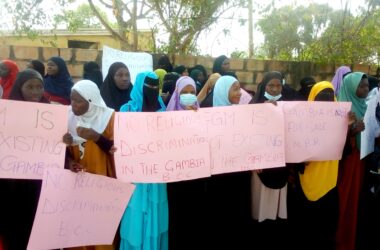
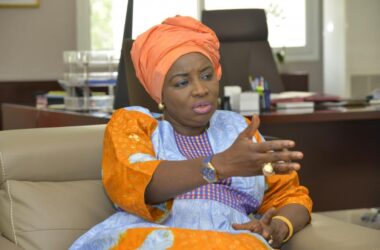

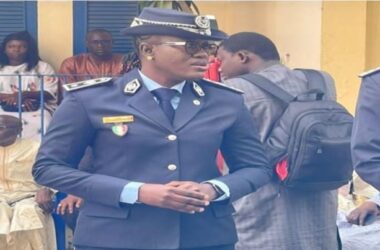
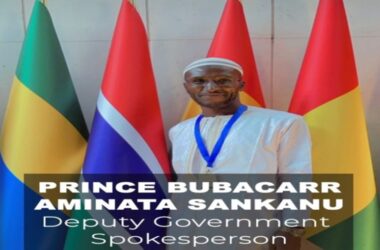



Respect…. A truly factual reflection of the man and the situation at his time; the only way we can learn from him and his legacy in order to carve a better future for ourselves. Thank you brother for the lessons drawn for us to consume.